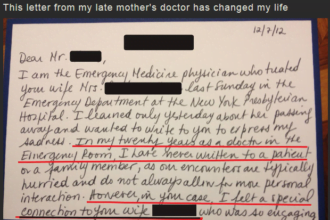Discussing cancer with adults can be difficult, but most adults have some experience with cancer and can relate to this in some way. How you discuss cancer with children is more complex but I believe there is important good news to share.
Discussing cancer with adults can be difficult, but most adults have some experience with cancer and can relate to this in some way. How you discuss cancer with children is more complex but I believe there is important good news to share.
 Last Saturday I was the invited speaker at the American Cancer Society’s Relay for Life event at the high school in my hometown, Mercer Island, Washington. There are many such events happening right now across the nation. A couple of hundred young people ages 15-18 sat on the grass in the sun as we kicked off the afternoon and overnight event. Together and over many months they had raised more than $100,000 for the ACS. Their hope is that this money can help put an end to cancer in their lifetime. In my remarks I tried to encourage them that just maybe we are on the road to that goal.
Last Saturday I was the invited speaker at the American Cancer Society’s Relay for Life event at the high school in my hometown, Mercer Island, Washington. There are many such events happening right now across the nation. A couple of hundred young people ages 15-18 sat on the grass in the sun as we kicked off the afternoon and overnight event. Together and over many months they had raised more than $100,000 for the ACS. Their hope is that this money can help put an end to cancer in their lifetime. In my remarks I tried to encourage them that just maybe we are on the road to that goal.
Back in the 70’s President Richard Nixon announced what he called the War on Cancer. It was as if it was one disease and it could be conquered like conquering a country or taking over some remote island in the Pacific. Since then a lot has happened. We’ve learned cancer is many diseases and sub-types, we’ve learned who is at higher risk either because of lifestyle choices (like smoking) or their genetics, and we’ve learned how different modalities of treatment – surgery, medicines, and radiation – working together, can have a powerful synergistic effect.
Today there are more than 12 million cancer survivors in the U.S. I feel fortunate to be one of them. The three drug experimental drug therapy I received in 2000 has worked in keeping my leukemia at bay. For many other patients this has been a “better” time to have cancer as targeted therapies have emerged to keep them alive and feeling well. New therapies that re-educate our immune systems to kill the cancer it missed the first time are emerging. When you put it all together, as I tried to do in my remarks to the students, they should be encouraged that real progress is being made.
 Like many of the doctors I interview for Patient Power, I am not entirely confident that we will “cure” cancer or totally win the “war.” Cancer rears its head in too many different ways and, unfortunately, often so late in its course that it is hard to catch up and beat back. But we are making progress there too, with better diagnostics, education of the general population about cancer, and an understanding of where genetics and family history come into play.
Like many of the doctors I interview for Patient Power, I am not entirely confident that we will “cure” cancer or totally win the “war.” Cancer rears its head in too many different ways and, unfortunately, often so late in its course that it is hard to catch up and beat back. But we are making progress there too, with better diagnostics, education of the general population about cancer, and an understanding of where genetics and family history come into play.
We do have a long way to go and too many lives are lost or negatively impacted by cancer. Some of the students on the field had lost a parent or grandparent; one of the student organizers is in current treatment for leukemia. But, I believe, when we talk to our kids, we can honestly say we are doing better for many patients and the prospects are encouraging to continue that trend. Their interest in fighting cancer and their fundraising are very positive steps that make us proud and encouraged that these young people might live in a future when cancer can be a typically very manageable and a lot less scary diagnosis.
Wishing you and your family the best of health!
Andrew








